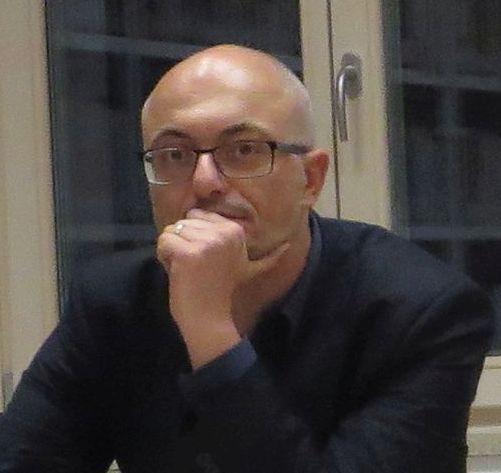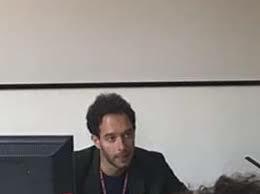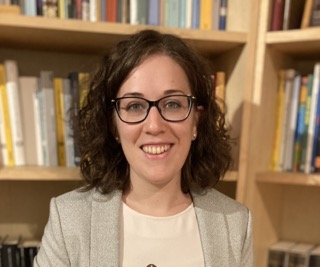Studying at the University of Verona
Here you can find information on the organisational aspects of the Programme, lecture timetables, learning activities and useful contact details for your time at the University, from enrolment to graduation.
Academic calendar
The academic calendar shows the deadlines and scheduled events that are relevant to students, teaching and technical-administrative staff of the University. Public holidays and University closures are also indicated. The academic year normally begins on 1 October each year and ends on 30 September of the following year.
Course calendar
The Academic Calendar sets out the degree programme lecture and exam timetables, as well as the relevant university closure dates..
| Period | From | To |
|---|---|---|
| 1 A | Sep 26, 2022 | Nov 5, 2022 |
| 1 B | Nov 14, 2022 | Dec 22, 2022 |
| 2 A | Feb 13, 2023 | Apr 6, 2023 |
| 2 B | Apr 12, 2023 | May 27, 2023 |
| Session | From | To |
|---|---|---|
| Sessione invernale | Jan 9, 2023 | Feb 11, 2023 |
| Sessione estiva | Jun 5, 2023 | Jul 29, 2023 |
| Sessione autunnale | Aug 28, 2023 | Sep 23, 2023 |
| Session | From | To |
|---|---|---|
| Sessione straordinaria (a.a. 2021/22) | Mar 31, 2023 | Apr 6, 2023 |
| Sessione estiva | Jul 10, 2023 | Jul 15, 2023 |
| Sessione autunnale | Nov 6, 2023 | Nov 11, 2023 |
| Sessione straordinaria | Apr 2, 2024 | Apr 8, 2024 |
| Period | From | To |
|---|---|---|
| Chiusura edifici | Oct 31, 2022 | Oct 31, 2022 |
| Festa di Ognissanti | Nov 1, 2022 | Nov 1, 2022 |
| Festa dell'Immacolata | Dec 8, 2022 | Dec 8, 2022 |
| Chiusura edifici | Dec 9, 2022 | Dec 10, 2022 |
| Vacanze di Natale | Dec 23, 2022 | Jan 7, 2023 |
| Vacanze di Pasqua | Apr 7, 2023 | Apr 10, 2023 |
| Festa della Liberazione | Apr 25, 2023 | Apr 25, 2023 |
| Festa del lavoro | May 1, 2023 | May 1, 2023 |
| Festa del Santo Patrono | May 21, 2023 | May 21, 2023 |
| Festa della Repubblica | Jun 2, 2023 | Jun 2, 2023 |
| Chiusura estiva | Aug 13, 2023 | Aug 19, 2023 |
Exam calendar
Exam dates and rounds are managed by the relevant Culture and Civilisation Teaching and Student Services Unit.
To view all the exam sessions available, please use the Exam dashboard on ESSE3.
If you forgot your login details or have problems logging in, please contact the relevant IT HelpDesk, or check the login details recovery web page.
Should you have any doubts or questions, please check the Enrollment FAQs
Academic staff
 giovanni.bernardini@univr.it
giovanni.bernardini@univr.it
 giacomo.buoncompagni@univr.it
giacomo.buoncompagni@univr.it
 francesca.cecconi@univr.it
francesca.cecconi@univr.it
 giacomo.mormino@univr.it
giacomo.mormino@univr.it
 michele.pasqua@univr.it
michele.pasqua@univr.it
 giovanna.rech@univr.it
giovanna.rech@univr.it
 valentina.romanzi@univr.it
valentina.romanzi@univr.it
 alberto.scandola@univr.it
alberto.scandola@univr.it
 elena.zilotti@univr.it
elena.zilotti@univr.it
Study Plan
The Study Plan includes all modules, teaching and learning activities that each student will need to undertake during their time at the University.
Please select your Study Plan based on your enrollment year.
1° Year
| Modules | Credits | TAF | SSD |
|---|
1 module between the following1 module among the following2° Year activated in the A.Y. 2023/2024
| Modules | Credits | TAF | SSD |
|---|
1 module among the following1 module among the following| Modules | Credits | TAF | SSD |
|---|
1 module between the following1 module among the following| Modules | Credits | TAF | SSD |
|---|
1 module among the following1 module among the following| Modules | Credits | TAF | SSD |
|---|
Legend | Type of training activity (TTA)
TAF (Type of Educational Activity) All courses and activities are classified into different types of educational activities, indicated by a letter.
Type D and Type F activities
COMPETENZE TRASVERSALI
| years | Modules | TAF | Teacher |
|---|---|---|---|
| 1° 2° | FAI Activities | F |
Edoardo Bianchi
(Coordinator)
|
| 1° 2° | Series of conferences Don Nicola Mazza University College | F |
Alessandra Zangrandi
(Coordinator)
|
| 1° 2° | Business English for everybody | F |
Serena Dal Maso
(Coordinator)
|
| 1° 2° | Russian for everybody | F |
Serena Dal Maso
(Coordinator)
|
| 1° 2° | Worlds of Fashion: Themes and Actors | F |
Alessandra Zamperini
(Coordinator)
|
| years | Modules | TAF | Teacher |
|---|---|---|---|
| 1° 2° | FAI Activities | F |
Edoardo Bianchi
(Coordinator)
|
| 1° 2° | Series of conferences Don Nicola Mazza University College | F |
Alessandra Zangrandi
(Coordinator)
|
| 1° 2° | Conference PRIN "Ippolito Nievo tra i Mille" | F |
Alessandra Zangrandi
(Coordinator)
|
| 1° 2° | Business English for everybody | F |
Serena Dal Maso
(Coordinator)
|
| 1° 2° | Russian for everybody | F |
Serena Dal Maso
(Coordinator)
|
| 1° 2° | From Romeo and Juliet to Juliet and Romeo: between Law and Passion”: Colloquium on Riccardo Zandonai | F |
Silvia Bigliazzi
(Coordinator)
|
| 1° 2° | Worlds of Fashion: Themes and Actors | F |
Alessandra Zamperini
(Coordinator)
|
| 1° 2° | Squadristi in celluloid. The march on Rome between documentary and fiction | F |
Denis Lotti
(Coordinator)
|
| 1° 2° | Università e DSA - Metodi e strategie per affrontare lo studio e il percorso universitario | F |
Simona Brunetti
(Coordinator)
|
| years | Modules | TAF | Teacher |
|---|---|---|---|
| 1° 2° | Gnoseology and Metaphysics Workshop | F |
Davide Poggi
(Coordinator)
|
| years | Modules | TAF | Teacher |
|---|---|---|---|
| 1° 2° | FAI Activities | F |
Edoardo Bianchi
(Coordinator)
|
| 1° 2° | Fine della "globalizzazione"? Dialoghi sul mondo che cambia | F |
Giovanni Bernardini
(Coordinator)
|
| 1° 2° | Introduction to robotics for humanities students | F |
Paolo Fiorini
(Coordinator)
|
| 1° 2° | Workshop on digital publishing | F |
Andrea Bongiorni
(Coordinator)
|
| 1° 2° | Laboratorio di scrittura critica per lo spettacolo | F |
Simona Brunetti
(Coordinator)
|
| 1° 2° | Opera Workshop | F |
Nicola Pasqualicchio
(Coordinator)
|
| 1° 2° | "Shake Shakespeare Up!" workshop | F |
Silvia Bigliazzi
(Coordinator)
|
| 1° 2° | Theatre with wheels | F | Not yet assigned |
| years | Modules | TAF | Teacher |
|---|---|---|---|
| 1° 2° | Gnoseology and Metaphysics Workshop | F |
Davide Poggi
(Coordinator)
|
| years | Modules | TAF | Teacher |
|---|---|---|---|
| 1° 2° | Future's Festival | F |
Alessandra Zangrandi
(Coordinator)
|
| 1° 2° | Laboratory of radio languages | F |
Simona Brunetti
(Coordinator)
|
Organizational and Communication Psychology (2023/2024)
Teaching code
4S02362
Teacher
Coordinator
Credits
12
Language
Italian
Scientific Disciplinary Sector (SSD)
M-PSI/06 - WORK AND ORGANIZATIONAL PSYCHOLOGY
Period
CuCi 1 A, CuCi 1 B
Courses Single
Authorized
Learning objectives
The course aims to provide elements of work and organizational psychology for human resources management. This one should allow companies and enterprises to express themselves both inside their environments (so that goals are reached and a nice and positive organizational climate is created) and outside (so that potential clients or users know what the company or enterprise does and makes and can appreciate their products and services).
Prerequisites and basic notions
No prerequisites required
Program
The course program will deal with innovative digital communication methodologies in the main areas of organizational psychology. In particular in relation to the study and application of organizational policies, such as: interventions for the development of pro-social organizational behavior, work redesign, Diversity Management, Job Crafting and Organizational Nudging interventions, interventions aimed at improving decision-making processes, stress management-related work, team-building.
Bibliography
Didactic methods
The teaching methods adopted are distinguished between attending and non-attending students due to the high rate of innovation of the reference literature which requires continuous verification of the contents of the course provided. As far as attending students are concerned, teaching will be provided in the form of lectures dedicated to the transmission of the basic notions, key categories and fundamental application tools; to this are added the exercises in reading scientific articles and writing digital papers in the field of Organizational Psychology. Furthermore, with the help of the University e-learning platform, refresher readings and the use of media concerning the topics covered in the course are proposed.
Learning assessment procedures
The assessment of learning outcomes involves an oral presentation based on the preparation and presentation of a written paper to be forwarded to the teacher one week before the start of the exam session - and evaluated entirely as an exam. Information on the production of the product can be found in the following guide on Moodle.
Evaluation criteria
The exam product will be assessed for: presentation relevant to the delivery, organization of the topics covered: logic and coherence, presentation is clear and correct, articulated lexicon and rich in technical terms.
Criteria for the composition of the final grade
The evaluation consists of the grade assigned to the exam product and any group work required of attending students.
Exam language
Italiana
Career prospects
Module/Programme news
News for students
There you will find information, resources and services useful during your time at the University (Student’s exam record, your study plan on ESSE3, Distance Learning courses, university email account, office forms, administrative procedures, etc.). You can log into MyUnivr with your GIA login details: only in this way will you be able to receive notification of all the notices from your teachers and your secretariat via email and also via the Univr app.
Graduation
List of thesis proposals
| theses proposals | Research area |
|---|---|
| Laureandi Editoria e Giornalismo: vademecum | Various topics |
| TESI SU COMUNICAZIONE DELL’AGROALIMENTARE | Various topics |

 +39 045802 8409
+39 045802 8409






































